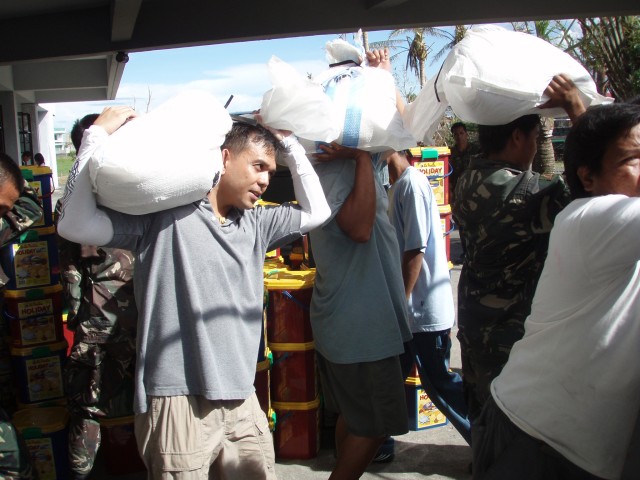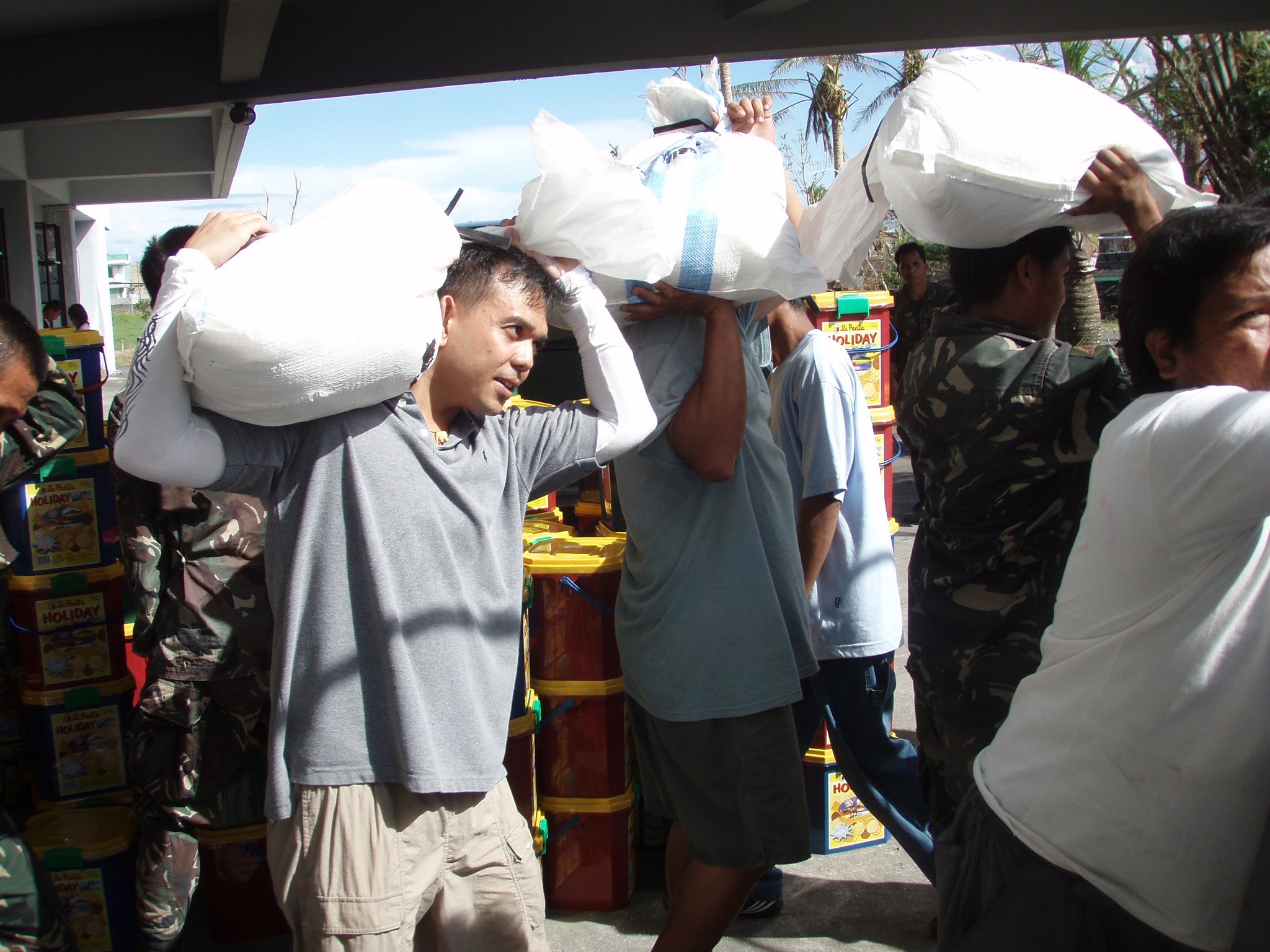
SILVER SPRING, Md. (Army News Service, Feb. 16, 2007) - Capt. Michael Van Hoven was stunned when he saw CNN's Internet coverage of the typhoon that hit the Philippines in late November 2006.
High winds stripped roofs from houses and buildings, and flash floods from heavy rains created mudslides, destroying crops and livelihoods. Power and water systems were devastated. Hundreds died; thousands were left homeless.
"I was shocked at seeing the dead along the road - the same road I used when going to school," said Van Hoven, a native of the Philippines. The captain is assigned to the Armed Forces Research Institute of Medicine Sciences in Thailand, where researchers study tropical diseases endemic to Thailand and Southeast Asia for the U.S. military. The overseas lab is an asset of the Walter Reed Army Institute of Research in Silver Spring, Md.
As the death tolls and damage climbed, the laboratory officer felt compelled to return to his family farm in Albay, even though he hadn't called the Philippines home for more than a dozen years.
"I could not sit in comfort knowing that the very people I shared my life with were going to starve," he said. "I played and grew up with their children, who at this time already have their own families and some are still on the farm. Our people have no one to run for help."
When Van Hoven asked his commanders at AFRIMS for permission to go to the Philippines, they supported him. "It was the right thing to do from a human standpoint. I knew (he) was from the area affected and there were many people in need," said Lt. Col. Robert Gibbons, Van Hoven's supervisor. "Second, we do (research) work in the Philippines, and we want to be supportive of the country in any way that we can."
Typhoons are common in the Philippines. Five struck in 2006, killing 688 people and destroying more than 175,000 homes, according to the Philippines National Red Cross. Typhoon Durian, the one that hit Nov. 30, was a super typhoon with winds of up to 165 miles per hour.
Van Hoven witnessed many typhoons during his 25 years in the Philippines. One super typhoon named Sisang that hit in 1986 is still a vivid memory. While studying for mid-terms by candlelight as Sisang roared, Van Hoven heard a loud crack, and then books fell from a shelf onto him.
"When I grabbed a flashlight and pointed it to the ceiling, there was no reflection," he said. "That was when I realized that our roof was gone. I made it to the other room and took my screaming mom and little sister downstairs to safety."
Taking sympathy and donations, Van Hoven headed home for the first time since 1992. He hoped to provide two months of food and funds to buy seeds and fertilizer to help the farm's 10 families start over.
The captain also approached the U.S. Agency for International Development for help in buying non-food items. USAID referred him to a local development foundation, World Vision. The organization gave each family on the farm 50 kilos of rice, a lantern and flashlight, a sleeping mat and mosquito net and a box of cookies.
In turn, Van Hoven organized volunteers from the farm to help distribute World Vision's relief goods to others who had lost everything.
Van Hoven's efforts soon reached beyond his farm. His military ties led him to link up with an advance party of Marines from the 3rd Marine Expeditionary Brigade that arrived Dec. 3 from Okinawa, Japan, to provide humanitarian assistance. He worked with their officers in coordinating the medical assistance.
By mid-December Van Hoven was officially attached to the Joint U.S. Military Assistance Group in the Republic of the Philippines.
"I was the stay-behind and guy-on-the-ground for JUSMAGPHIL while at the same time supporting World Vision," he said.
Most of his work with that organization involved strenuous physical labor. He helped repack relief items from bulk containers into distributable packs, load those packs on to trucks and unload supplies to help 400 to 900 families daily.
"It is hard to explain the joy it brings when the people receiving those relief items express their gratitude," he said. "The end result of what everyone did was directly evident."
Officially, Van Hoven's involvement with relief efforts ended Dec. 23, and he returned to Thailand.
His unofficial work continues. He, his wife and her family organized a local relief organization using donations gathered from the Nichada Thani community, the housing complex where the Van Hovens live in Thailand.
"The most important point is the opportunity to help others," Van Hoven said.
(Karen Fleming-Michael writes for U.S. Army Medical Research and Materiel Command Public Affairs)

Social Sharing